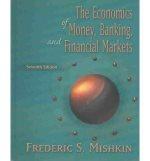Question
Problem 1. The price of a non-dividend-paying stock is currently $50. It is known that in six months the stock price will be either $45
Problem 1. The price of a non-dividend-paying stock is currently $50. It is known that in six months the stock price will be either $45 or $55. The continuously compounded risk-free interest rate is 10% per year. What is the risk-neutral probability that the stock price reaches $45 in six months?
A.0.244
B.0.373
0.5
D.0.627
E.0.756
Problem 2. Consider the same stock as in Problem 1 and a six-month European put option on the stock with a strike price of $47. A trader sells one put option. To hedge, he should long ______ shares.
-0.4
-0.3
-0.2
0.2
0.3
Problem 3. Consider the same stock and European put option as in Problem 2. What is the current value of the option?
A.$0.46
B.$0.71
C.$1.16
D.$1.90
E.$2.16
Problem 4. A stock price is currently $80. It is known that in 4 months it will be either $75 or $85. The risk-free interest rate is 5% per year with continuous compounding. Consider a 4-month European call option with a strike price of $80. (1) Draw the binomial tree. (2) Compute of the option. (3) Compute the risk-neutral probability. (4) Find the current value of the call option.
Problem 5. A stock price is currently $40. Over every 3-month period the stock prices goes either up by 10% or down by 10%. The continuously compounded risk-free interest rate is 12% per year. Use a 2-step binomial tree to find the value of a 6-month American put option with a strike price of $45.
Step by Step Solution
There are 3 Steps involved in it
Step: 1

Get Instant Access to Expert-Tailored Solutions
See step-by-step solutions with expert insights and AI powered tools for academic success
Step: 2

Step: 3

Ace Your Homework with AI
Get the answers you need in no time with our AI-driven, step-by-step assistance
Get Started


